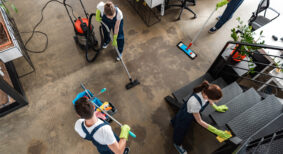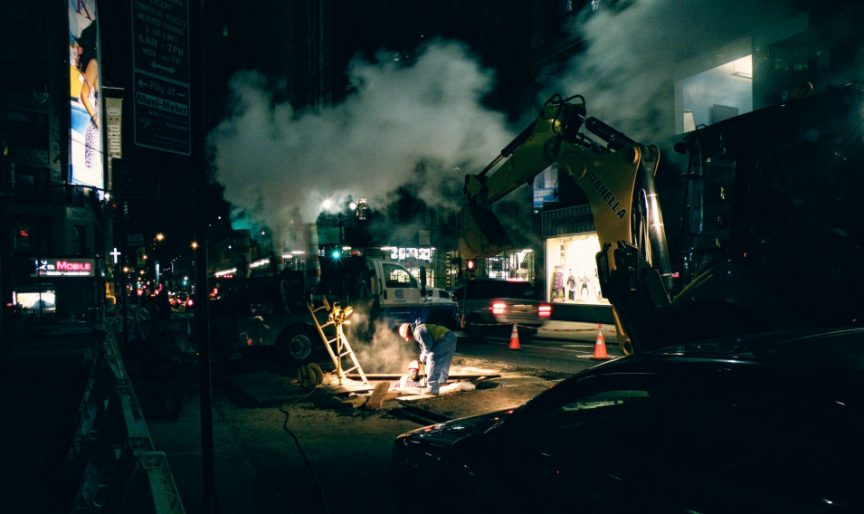In some cases, it makes sense to carry out cleaning and maintenance work after dark. There is less foot and vehicular traffic and fewer distractions and interruptions in most facilities at night, and that can lend itself nicely to a job well done. But, of course, night cleaning brings its own set of specific challenges and potential hazards.
Poor visibility, tiredness, and the potential for a reduced amount of immediate help on hand are just some of these possible pitfalls. It’s important to safeguard against these potential issues before they occur to better prepare and protect your employees out in the field.
Janitorial Manager outlines nine ways that night cleaning crews can be kept safe on the job.
Identify potential hazards early
Before your team begins working in a location, it’s important to note potential hazards on site. Be switched on to potential dangers and conduct a full health and safety inspection, if necessary, so you can prepare your crew ahead of time.
Be attentive to basic safety principles
According to the U.S. Bureau of Labor Statistics, the most common on-the-job injuries in commercial cleaning are muscle injuries from falls. The likelihood of this happening can reasonably be assumed to be greater after dark, so be sure to take the basic step of reviewing safety protocols and practices for night cleaning crews.
Be conscious of scheduling
Some people on your night cleaning crew can be more at risk than others in certain situations, such as over-tiredness. Create your schedule in a mindful and empathetic manner with this in mind.
Work in groups of two or more
Wherever possible, try to schedule teams of two or more for your night and overnight cleaning shifts so nobody is ever left isolated and alone after dark, as well as to quicken tasks.
Have first aid on hand
Keep a first aid kit close by while workers are on the job. Additional kits can be kept in a janitorial closet or other areas throughout a facility for backup.
Train for emergencies
In the event of a night cleaning emergency, good training can make all the difference.
Practice proper chemical safety
Cleaning chemicals can cause an array of issues, from skin irritation to breathing problems and more. OSHA has a wealth of information regarding workplace safety for cleaning organizations, but every team member needs to understand how to interpret the Safety Data Sheets on cleaning products, as well as things such as the importance of ventilation and what to do in the event of exposure.
Offer situational awareness classes
A good instructor will go over issues like situational awareness, knowing how to recognize a potentially dangerous situation, and what you can do to avoid it.
Communication, communication, communication
Communication is important for safety reasons, but it also improves the overall effectiveness of a night cleaning crew. Ensure staff have access to a phone or other instant communication device throughout the entirety of their shift so that they can get in contact if an unsafe situation occurs.








